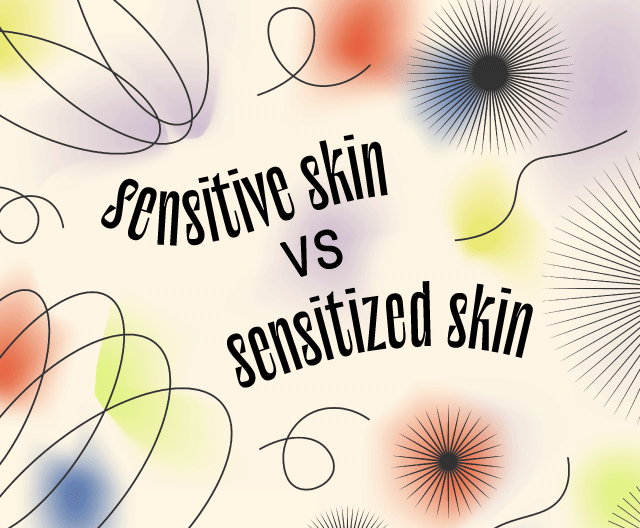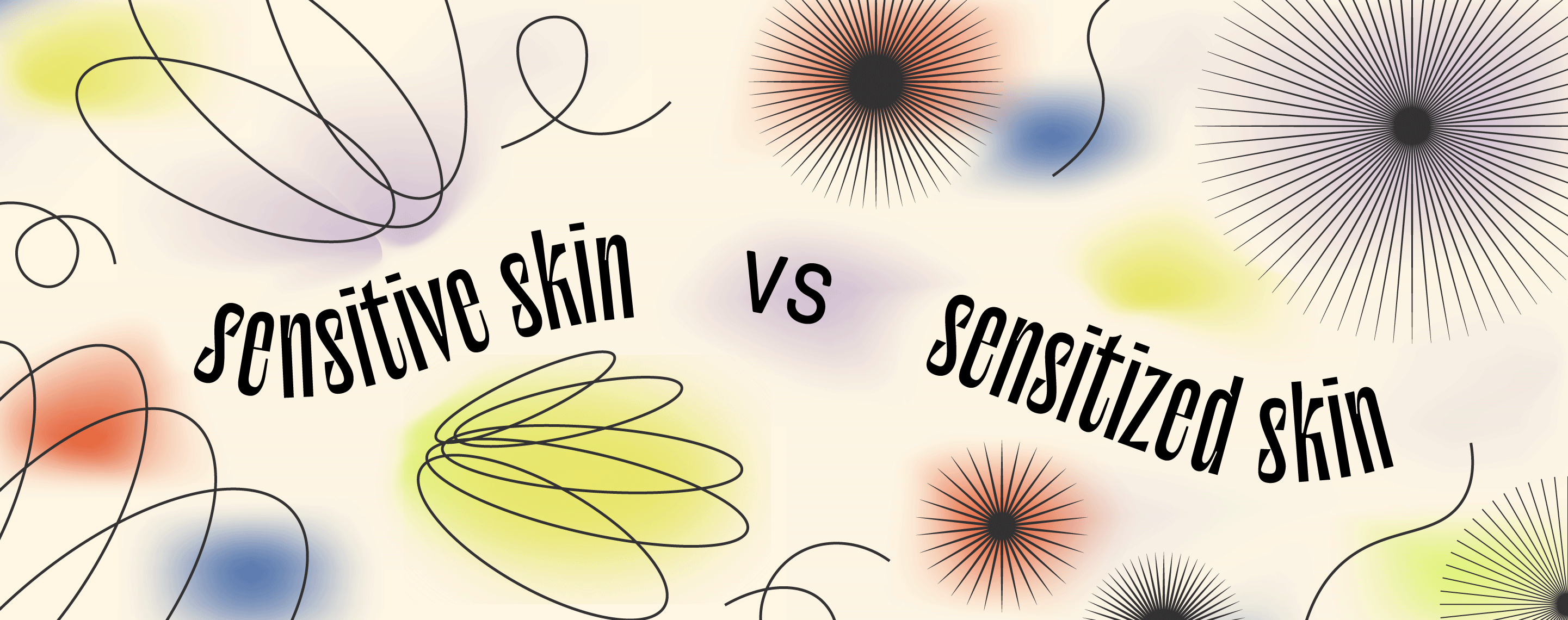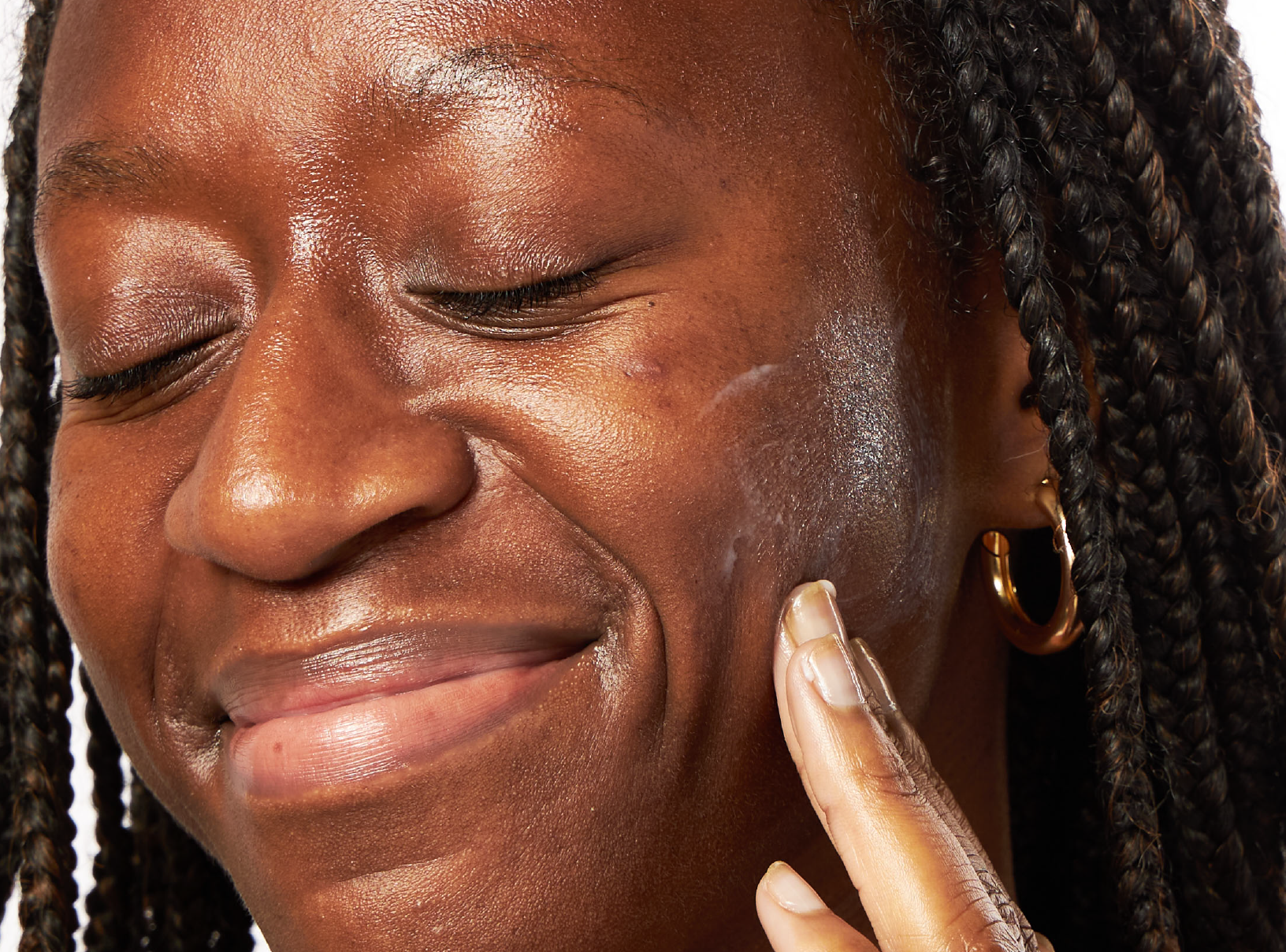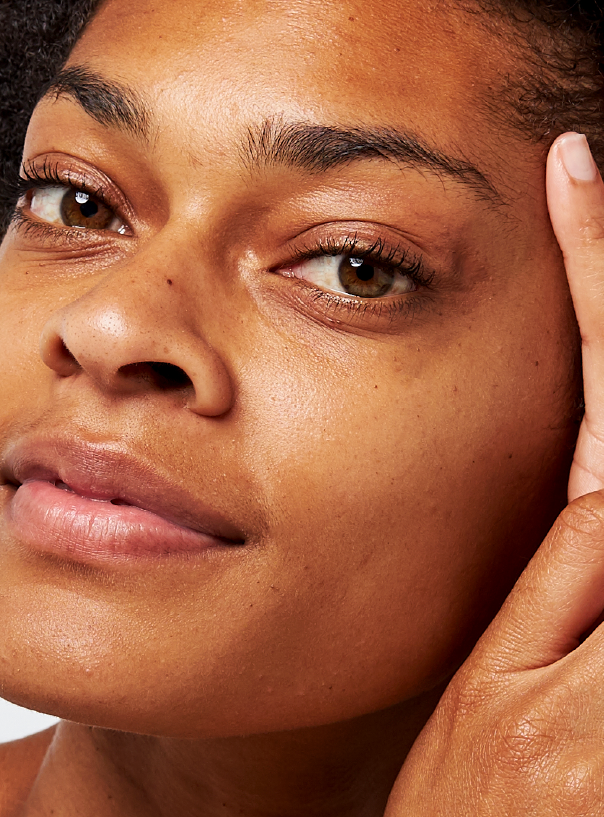Education
Sensitive vs. Sensitized Skin


SHARE
Education
Sensitive vs. Sensitized Skin
Medically reviewed by Aimee Paik, MD
Written by Annie Lam
Last updated 4/5/2022
Is your skin red, irritated, or inflamed? You could have sensitive - or sensitized - skin. Sensitive and sensitized skin can look very similar in terms of appearance, but they’re actually very different. We’re talking about the difference between sensitive and sensitized skin and our recommendations to treat them.
What is sensitive skin?
Sensitive skin is a skin type that is naturally more prone to irritation, itchiness, and inflammation. It is typically rooted in genetics and isn’t something that can truly be “solved”. Sensitivity can also be linked to hormones and allergies. People with skin conditions like eczema or rosacea have sensitive skin because they are born with a skin type that makes their skin more susceptible to inflammation. While there is no true “cure” for sensitive skin, being gentle with your skin and keeping your skin barrier strong can help minimize sensitivity.
What is sensitized skin?
Sensitized skin is a temporary skin condition where your skin is easily irritated or inflamed. It’s typically a reaction to internal or external factors (like introducing strong ingredients like retinoids). Some other common triggers for sensitized skin are allergic reactions, increased sun exposure, over-cleansing or over-stripping the skin, and more. Many people have sensitized skin when overdoing it with strong products like exfoliating acids or prescription treatments. Once your skin has become sensitized, it can become even more irritated by products that would not usually bother your skin. Remember to start slow when introducing strong ingredients to help prevent sensitivity or irritation!
How to tell the difference between sensitive and sensitized skin?
As mentioned earlier, both sensitive and sensitized skin can look similar in terms of appearance, so it can be difficult to tell the difference. Since sensitive skin is a skin type, you may experience irritation more regularly based on your natural triggers (like increased flushing in hot environments). Sensitized skin is more temporary, so if you are experiencing irritation for the first time, your skin is likely sensitized rather than sensitive. You will typically notice patterns in your irritation with sensitive skin, whereas sensitized skin tends to be a “one-off” instance.
Recommendations for sensitive & sensitized skin
😌 Be gentle with your skin. Whether your skin is sensitive or sensitized, we recommend using gentle products that are fragrance and essential oil free (as these ingredients can trigger sensitivity).
👍🏼 Keep your routine simple. Focusing on a basic routine can help minimize potential irritation, especially when you’re experiencing sensitivity.
💪 Incorporate barrier-strengthening ingredients. Keeping your skin barrier strong can help minimize sensitivity. Look for ingredients like niacinamide and ceramides to keep your skin happy and healthy.
Overall, sensitive and sensitized skin are both very different, even if they can appear similar on the skin. It can take time to get your sensitivity under control, but being gentle with your skin can go a long way. Keeping your skin barrier strong will keep your skin happy and healthy in the long run!
Like what you just read? Sign up for our email list to get the scoop on skincare science delivered straight to your inbox.

Deep Dives
A dermatologist shares his thoughts on the recent studies about benzoyl peroxide and benzene.
Read More
Education
What is milia?
What is milia? Today, we’re jumping into one type of bump that you may have heard about most commonly in infants — milia.
Read More
Education
Best moisturizer for acne-prone skin
If you have combination acne-prone skin, figuring out which moisturizer is best for your skin might be tough. In this guide, we break down the best moisturizer for combination, acne-prone skin.
Read More
